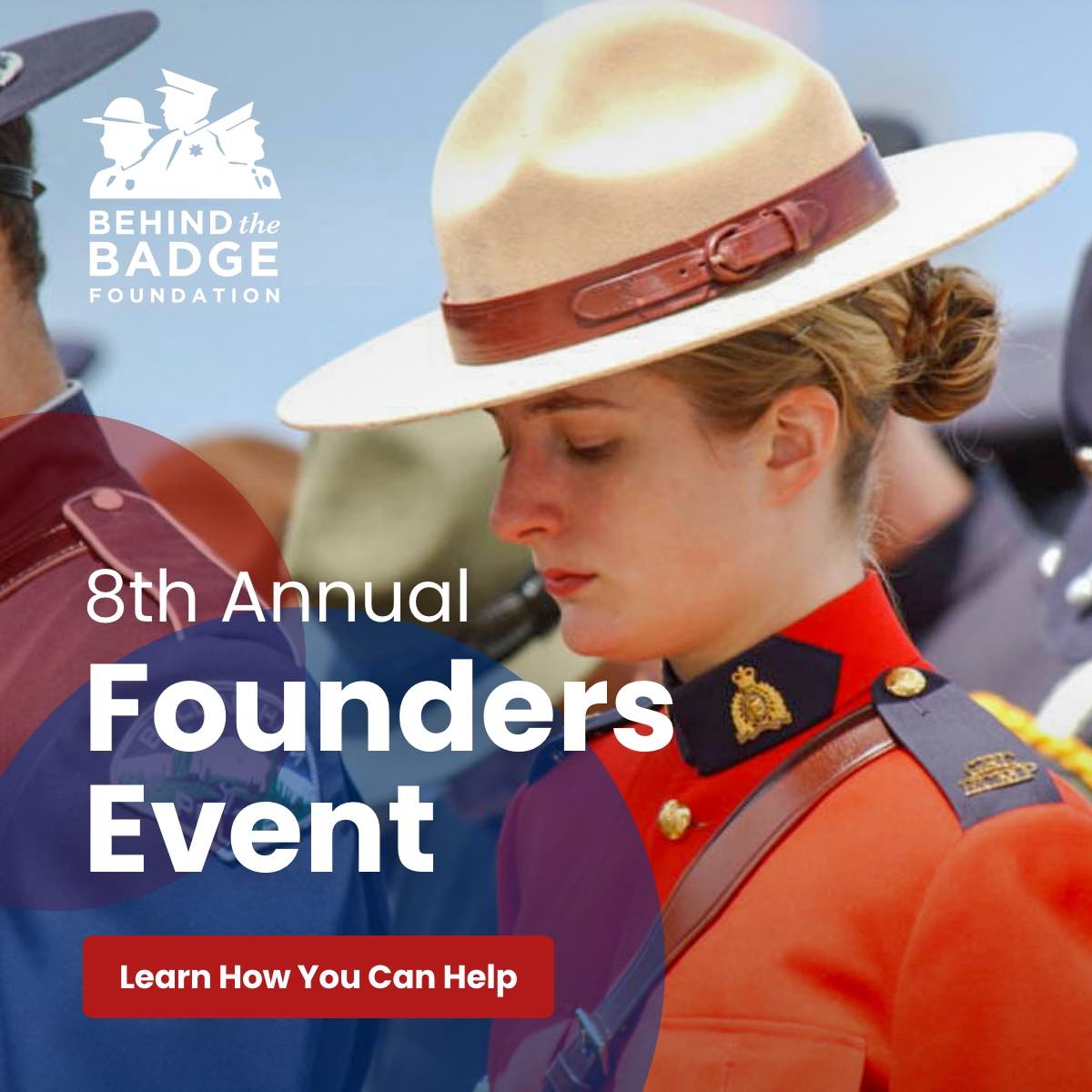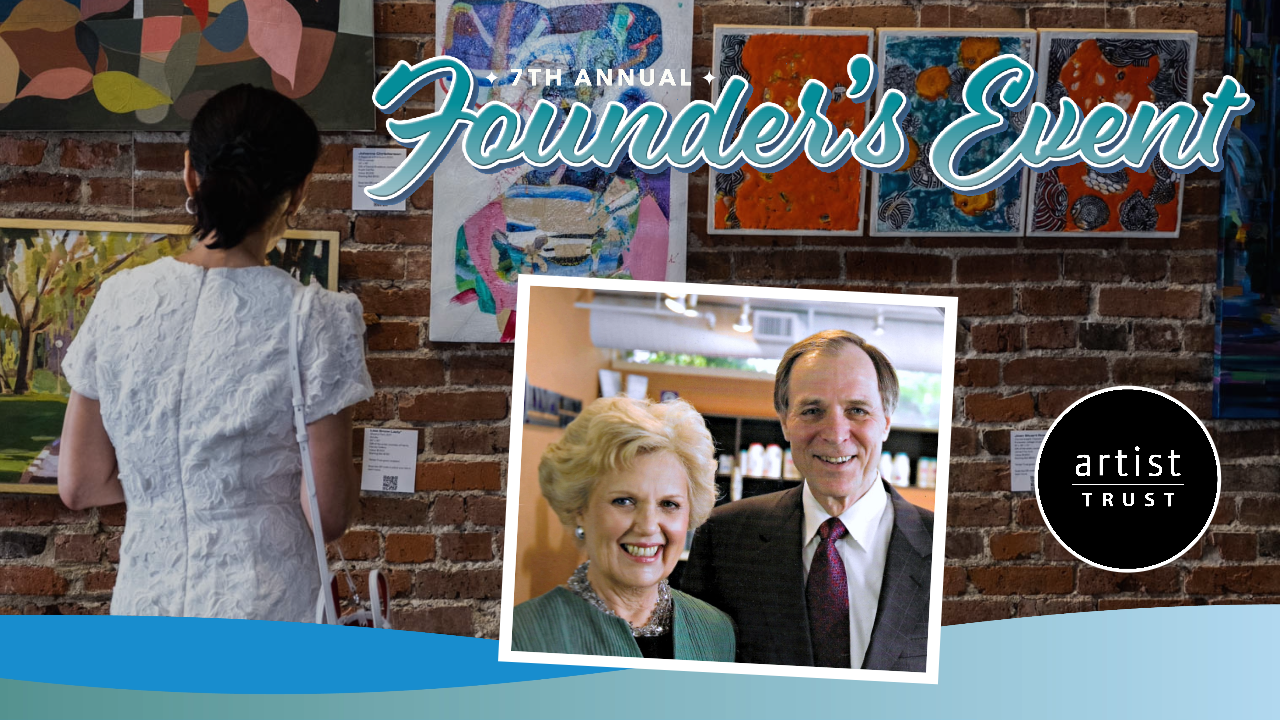
CATEGORIES
ACE Salt Water Sanitizing System
Arthritis Relief
Back Pain Relief
Benefits of Salt Water Tubs
Better Sleep
Endless Pools Blog
Featured
Fibromyalgia
Freeflow Spas
Fun Blocks
Health
Heart Related Benefits
Hot Spring Spas
Hot Spring Spas Blog
Hot Tub Buyers Guide
Hot Tub Care
Hot Tub Lifestyle
Hot Tubs and Health
Latest Posts
Olympic Hot Tub News
SilkBalance
Stress Relief
Uncategorized
Uncategorized
Weight Loss
Wellness
Woodinville
 Olympic’s 8th Annual Honoring Heroes Event Supports Behind the Badge Foundation
Olympic’s 8th Annual Honoring Heroes Event Supports Behind the Badge Foundation
April is one of my favorite months at Olympic. The air is charged with the spirit of giving, thanks to our 8th annual Honoring Heroes Event. This year’s event is dedicated to those who serve and protect—the silent heroes behind the badge. With every purchase of a hot tub or swim spa, a portion of the sale is contributed to an incredible cause, and this year it is our honor to support the Behind the Badge Foundation.
The Behind the Badge Foundation stands as a beacon of support and remembrance. Their noble mission is to remember the courage and dedication of law enforcement officers who have suffered injuries or lost their lives on duty. Supporting families in these critical moments, the foundation is a stabilizing force amidst the turbulence of loss and recovery.
The foundation doesn't stop there; they also diligently maintain the Washington State Law Enforcement Memorial. It is a sacred space that commemorates the sacrifices made by officers and serves as a perpetual reminder of their unyielding courage and public service. By choosing to participate in our Honoring Heroes Event, you become part of a community that upholds the legacy of those who serve.
Throughout April, Olympic Hot Tub aims to give back to those who have given their all. The event isn't just about finding your sanctuary in the comfort of a hot tub or swim spa—it's about creating a ripple effect of goodwill that reaches the lives of law enforcement officers and their families.
Here's how you can participate in our Honoring Heroes Event:
- Stop by any of our locations during April, purchase a Hot Spring Spa, Freeflow Spa or Endless Pool, and know that your investment means so much more!
- Share the event with friends and family who may be considering a hot tub or swim spa.
- Visit Behind the Badge Foundation’s website to learn more about their vital work, and spread awareness in your community.
We invite you to be a part of our 8th Annual Honoring Heroes Event. It's an opportunity for us to pay tribute to the valor of our officers and ensure their memories and the well-being of their loved ones are always held in the highest honor.
 Your therapeutic oasis! Hot tubs can help with arthritis
Your therapeutic oasis! Hot tubs can help with arthritis
Did you know? There are about fifty-four million adults in the U.S. suffering from some type of arthritis. There are over 100 variations of the condition that have been identified. Arthritis, which affects our joints, can cause pain, stiffness, swelling and make doing some very basic tasks sometimes daunting. While there is no cure for arthritis, there are definitely ways to manage it and improve day to day life: exercise, weight management and medication. But, if you want to integrate a tried and true natural method, a hot tub could be the perfect answer.
There is a terrific array of real benefits that soaking will provide to those living with arthritis. Consider these:
- The pain experienced from arthritis can be eased with soaking in 102-104 degree water. As you soak, your blood vessels will dilate as your body heats, improving blood flow and helping ease pain and stiffness.
- Immersion in hot water provides instant aid, thanks to the buoyancy you experience. It relieves pressure on your joints, providing relief.
- Let’s talk about jets! Adjustable jets in a hot tub that combine the power of air and hot water can help massage away muscle tenderness and facilitate flexibility.
- The buoyancy and heat experienced during a hot tub soak make it the perfect place to do some stretches that can increase your range of movement and help eliminate stiffness.
- Stress can exacerbate the symptoms of arthritis. It’s been well documented that regular hot tub soaks greatly alleviate stress, thanks to the increased production of dopamine and endorphins. You’ll emerge feeling better physically, mentally and emotionally!
The key to maximizing the benefits of hot water for arthritis is consistent soaks. You should consult with your doctor to determine the right regimen for you to follow. In general, regular hot tub sessions that last anywhere from 15-30 minutes at least 3-4 times per week should help you realize the cumulative effects. It should help improve your range of motion as well as help reduce pain associated with arthritis.
The line of Hot Spring Spas we carry at Olympic have the added benefit of saltwater soaking! Not only will you be immersing yourself in healthier water, but you’ll also be using fewer bottled water care products, limiting exposure to any harsh chemicals. You’d love the way it makes you feel!
 Create your swim spa oasis with these terrific plants
Create your swim spa oasis with these terrific plants
- Ferns—Ferns are a terrific choice. They thrive in shady and damp environments, so having them around your swim spa will be a great addition. They’re relatively low-maintenance plants that don't require a lot of sunlight. Having ferns around your swim spa creates a lush and natural environment while also providing some privacy.
- Hostas—I love hostas. They’re a fantastic plant sporting large leaves that come in a variety of colors, and they grow well in shady areas. Hostas are low maintenance and do well in areas with high humidity, making them a perfect addition around your swim spa.
- Rhododendrons—Rhodies are a Northwest staple. We had a number of these in our yard when I was growing up. They bloom in the spring and come in shades of red, white, pink and purple. They’re an ideal choice in the Northwest, as they’re evergreen and grow well in a damp shady climate.
- Hydrangeas—Hydrangeas are relatively easy to grow and thrive in the Pacific Northwest's damp climate. These lovely flowers come in a variety of shades, such as white, pink, or blue. Having a few pots of hydrangeas around your swim spa will add some brightness and color to your outdoor space.
- Bamboo--If you're looking for a plant to add some privacy to your swim spa area, bamboo is a great option. You can plant bamboo that grows quickly and makes for a fantastic natural fence. I, however, would make sure to plant bamboo in pots so it doesn’t run rampant in your backyard!
 Study finds benefits of a run and hot tub soaking similar!
Study finds benefits of a run and hot tub soaking similar!
 October 26th, 2023 –Are you a runner? I will confess that the last thing I would want to do to stay fit is jog. As it is, I find it challenging enough to get to a gym a few times a week to do a workout with my trainer. Ugh!
Well…if you would rather soak in a hot tub that hit the trails for a job, here’s some encouraging news! A new study from the UK indicates soaking in a hot tub has some of the same benefits as a 30-minute run.
Not a typo! You read that right. Researchers from Coventry University conducted a study with participants ranging in age from 26 to 60 years old. They asked the individuals involved in the research to soak in a hot tub three consecutive days for a half hour each time. Various factors were assessed: heart rate, cortisol levels, mood, and blood pressure among them.
The study determined that blood flow to the legs increased by 345% (!!). That’s comparable to the blood flow increase that results from a 30-minut run. Heart rate increased to the level that normally occurs during a brisk walk, and blood pressure decreased.
Salivary cortisol levels decreased by 22%. This is one of the indicators of stress, which means the soak is also beneficial for mood and mental health.
I wouldn’t tell you to ditch your running shoes if you’re an avid jogger. Physical exercise is one of the best ways for us to ward off aging, moderate weight and help with blood pressure and more. BUT! Isn’t it wonderful to know you can substitute a soak in a hot tub every once in a while and enjoy some of the same physical and mental benefits you can enjoy from a run?
It makes me want to run….right up to my hot tub.
October 26th, 2023 –Are you a runner? I will confess that the last thing I would want to do to stay fit is jog. As it is, I find it challenging enough to get to a gym a few times a week to do a workout with my trainer. Ugh!
Well…if you would rather soak in a hot tub that hit the trails for a job, here’s some encouraging news! A new study from the UK indicates soaking in a hot tub has some of the same benefits as a 30-minute run.
Not a typo! You read that right. Researchers from Coventry University conducted a study with participants ranging in age from 26 to 60 years old. They asked the individuals involved in the research to soak in a hot tub three consecutive days for a half hour each time. Various factors were assessed: heart rate, cortisol levels, mood, and blood pressure among them.
The study determined that blood flow to the legs increased by 345% (!!). That’s comparable to the blood flow increase that results from a 30-minut run. Heart rate increased to the level that normally occurs during a brisk walk, and blood pressure decreased.
Salivary cortisol levels decreased by 22%. This is one of the indicators of stress, which means the soak is also beneficial for mood and mental health.
I wouldn’t tell you to ditch your running shoes if you’re an avid jogger. Physical exercise is one of the best ways for us to ward off aging, moderate weight and help with blood pressure and more. BUT! Isn’t it wonderful to know you can substitute a soak in a hot tub every once in a while and enjoy some of the same physical and mental benefits you can enjoy from a run?
It makes me want to run….right up to my hot tub. Our 7th Annual Founder’s Event benefits Artist Trust
Our 7th Annual Founder’s Event benefits Artist Trust
 October 3rd, 2023 – Can you believe it’s October?? Halloween is just around the corner, and before you know it, we’ll be fully immersed in the holiday season. For me, part of the holidays is enjoying so much of what our region’s artists and arts organizations offer to entertain and inspire us. And it’s one of the reasons why we’ve chosen Artist Trust as this year’s beneficiary of our Founder’s Event.
Arts in our region were particularly hard hit by the pandemic. Unlike most of the areas of our lives on the way back to normal, life for artists and our arts organizations have had a harder time. For many years, Artist Trust has shown up for artists beyond monetary support. They work to elevate artists throughout Washington State, centering on those with diverse ethnicity and gender identities, as well as those with disabilities. They work to support and encourage artists working in all disciplines—music, art, writing and more.
Sustaining and supporting art is so critical! It has the power to transform, enlighten, educate, inspire and motivate. I have been a singing member of the Seattle Men’s Chorus since 1987 and had the joy of working with many local artists in greater Seattle over the years. It’s important now more than ever to help preserve the incredible artistic talent we’re fortunate surrounds us in the Pacific Northwest.
During October, a portion of every Hot Spring Spa, Freeflow Spa, and Endless Pools swim spa we sell will be donated to Artist Trust. If you or someone you know has been thinking about a hot tub or swim spa, this is the perfect month to purchase! You’ll not only take your health and well-being to a new level, you’ll also help the vital health and well-being of the arts in our region.
“Art is my life, and my life is art.” –Yoko Ono
You can donate directly at learn more at Artist Trust here.
October 3rd, 2023 – Can you believe it’s October?? Halloween is just around the corner, and before you know it, we’ll be fully immersed in the holiday season. For me, part of the holidays is enjoying so much of what our region’s artists and arts organizations offer to entertain and inspire us. And it’s one of the reasons why we’ve chosen Artist Trust as this year’s beneficiary of our Founder’s Event.
Arts in our region were particularly hard hit by the pandemic. Unlike most of the areas of our lives on the way back to normal, life for artists and our arts organizations have had a harder time. For many years, Artist Trust has shown up for artists beyond monetary support. They work to elevate artists throughout Washington State, centering on those with diverse ethnicity and gender identities, as well as those with disabilities. They work to support and encourage artists working in all disciplines—music, art, writing and more.
Sustaining and supporting art is so critical! It has the power to transform, enlighten, educate, inspire and motivate. I have been a singing member of the Seattle Men’s Chorus since 1987 and had the joy of working with many local artists in greater Seattle over the years. It’s important now more than ever to help preserve the incredible artistic talent we’re fortunate surrounds us in the Pacific Northwest.
During October, a portion of every Hot Spring Spa, Freeflow Spa, and Endless Pools swim spa we sell will be donated to Artist Trust. If you or someone you know has been thinking about a hot tub or swim spa, this is the perfect month to purchase! You’ll not only take your health and well-being to a new level, you’ll also help the vital health and well-being of the arts in our region.
“Art is my life, and my life is art.” –Yoko Ono
You can donate directly at learn more at Artist Trust here. Can hot tubs and alcohol mix?
Can hot tubs and alcohol mix?
 August 31st, 2023 – So…I admit I do not have any firsthand knowledge on this topic, as I’m not a drinker, nor have I ever been. But occasionally the topic of soaking in a hot tub and drinking alcohol or a nice glass of wine comes up. Before you reach for your favorite drink to enjoy in the hot tub, here are some things to think about!
First, let's talk about alcohol’s effect on your body while in a hot tub. Alcohol is a sedative and can make you feel more relaxed, but it can also dilate blood vessels and lower your blood pressure. In a hot tub, where the heat is already causing blood vessels to expand, alcohol can increase that effect. You will likely feel that buzz much faster than you would otherwise! This can lead to dizziness, fainting, and even dangerous drops in blood pressure.
Another serious concern: alcohol can impair judgment and reaction time, meaning that even a small slip in a hot tub could lead to serious injury. This is especially true if you are alone in the tub or have consumed a large amount of alcohol.
One of the biggest potential risks of combining alcohol with hot tubbing is dehydration. Hot tubs can cause you to sweat and lose fluids, and alcohol is a diuretic, which means it increases urine production. The combination can lead to severe dehydration and even heat stroke. If you’re in a tub drinking and feel lightheaded or dizzy, this could be one of the first indicators of dehydration.
If a hot tubber chooses to imbibe while taking a soak, one may become more relaxed and lose the ability to recognize danger or react quickly. This can lead to a slip or a trip getting out of the tub—no fun and potentially dangerous!
So, with all that being said, what can you do to enjoy both alcohol and hot tubs safely? Limiting your alcohol consumption is key. Make sure to hydrate with water before and after getting in the tub. Then, be smart and limit yourself to just one drink while you soak. And—drinking alone is never a good idea, especially when you’re hot tubbing.
Be smart. Be safe. While enjoying that favorite adult beverage while soaking is an appealing idea, it’s important to remember the potential risk of doing so. A nice glass of wine after you’ve enjoyed a hot tub soak is a much better idea.
August 31st, 2023 – So…I admit I do not have any firsthand knowledge on this topic, as I’m not a drinker, nor have I ever been. But occasionally the topic of soaking in a hot tub and drinking alcohol or a nice glass of wine comes up. Before you reach for your favorite drink to enjoy in the hot tub, here are some things to think about!
First, let's talk about alcohol’s effect on your body while in a hot tub. Alcohol is a sedative and can make you feel more relaxed, but it can also dilate blood vessels and lower your blood pressure. In a hot tub, where the heat is already causing blood vessels to expand, alcohol can increase that effect. You will likely feel that buzz much faster than you would otherwise! This can lead to dizziness, fainting, and even dangerous drops in blood pressure.
Another serious concern: alcohol can impair judgment and reaction time, meaning that even a small slip in a hot tub could lead to serious injury. This is especially true if you are alone in the tub or have consumed a large amount of alcohol.
One of the biggest potential risks of combining alcohol with hot tubbing is dehydration. Hot tubs can cause you to sweat and lose fluids, and alcohol is a diuretic, which means it increases urine production. The combination can lead to severe dehydration and even heat stroke. If you’re in a tub drinking and feel lightheaded or dizzy, this could be one of the first indicators of dehydration.
If a hot tubber chooses to imbibe while taking a soak, one may become more relaxed and lose the ability to recognize danger or react quickly. This can lead to a slip or a trip getting out of the tub—no fun and potentially dangerous!
So, with all that being said, what can you do to enjoy both alcohol and hot tubs safely? Limiting your alcohol consumption is key. Make sure to hydrate with water before and after getting in the tub. Then, be smart and limit yourself to just one drink while you soak. And—drinking alone is never a good idea, especially when you’re hot tubbing.
Be smart. Be safe. While enjoying that favorite adult beverage while soaking is an appealing idea, it’s important to remember the potential risk of doing so. A nice glass of wine after you’ve enjoyed a hot tub soak is a much better idea. Swim your way to better health with a swim spa
Swim your way to better health with a swim spa
 August 7th, 2023 -- One of the very best (and fun!) ways to get fit is swimming. For decades, for many the idea of a place to swim at home was a pipe dream at best. Now, with Endless Pools, there is finally an attainable way to enjoy swimming at home for fun and better health.
Swimming has long been touted as one of the best ways to get a complete body workout. Not only does it provide a terrific way to exercise every muscle group, it will also help you burn calories and is excellent for your heart.
Here are five ways swimming in an Endless Pool every day will help unlock your potential!
August 7th, 2023 -- One of the very best (and fun!) ways to get fit is swimming. For decades, for many the idea of a place to swim at home was a pipe dream at best. Now, with Endless Pools, there is finally an attainable way to enjoy swimming at home for fun and better health.
Swimming has long been touted as one of the best ways to get a complete body workout. Not only does it provide a terrific way to exercise every muscle group, it will also help you burn calories and is excellent for your heart.
Here are five ways swimming in an Endless Pool every day will help unlock your potential!
- Get stronger. The resistance provided by water helps you get a complete workout without putting too much strain on your joints. You’ll strengthen your core, build and tone muscles, and up your endurance. Swimming, working out with the resistance bands and more will have you feeling stronger than ever.
- Get in a good mood. While exercise in general helps to improve your mood, swimming makes getting that exercise much more enjoyable. Research done with 700 participants who swam outside experienced a noticeable reduction in depression and negative thinking. The endorphins that get released during a swim will help improve your mood and help reduce stress.
- Get better sleep. Getting aerobic exercise is known to help promote sleep and improve quality of sleep. Why not do that with a daily swim?
- Get your heart healthy. No one likes a broken heart, and swimming will definitely keep your heart from breaking! Swimming will help with blood pressure and reduce inflammation in the body. A study done with a group of adults with hypertension participated in water aerobics program for ten weeks. At the end of the study, significant reductions in systolic blood pressure resulted. It has also been shown to improve resting heart rate.
- Get reconnected. An Endless Pool in your backyard gives you, your friends, and your family a whole new way to enjoy your backyard. Reconnecting with friends and loved ones—regardless of how you do so—definitely helps with mental health. Your swim spa can be a great place to teach kids to swim, have an impromptu pool party, a girls’ night, graduation celebration, birthday parties… It can become the focal point of plenty of fun and great memories.
 Get ready to view the Northern Lights from your hot tub!
Get ready to view the Northern Lights from your hot tub!
 July 11th, 2023 – This week, on July 12th and 13th, we have a rare celestial treat in store for us in Greater Puget Sound! And there’s no better place to take in the show than your hot tub.
The Northern Lights, also known as the Aurora Borealis, have for centuries marveled and inspired us humans. While they are usually seen in the far northern reaches of Earth, in Greater Puget Sound, we rarely get to witness the stunning natural phenomenon. This week presents an exciting opportunity to see the Northern Lights!
Ever wonder how this fabulous show manifests in the sky? Northern Lights are a natural light show created when charged particles from the sun come into contact with the Earth's magnetic field. These charged particles collide with atoms and gases in the Earth's atmosphere, creating a colorful light display. The colors of the Northern Lights depend on the altitude and the gas molecules present in the atmosphere. Usually, the colors range from green to pink.
The lights should be visible from any location with a clear view of the northern horizon, far away from cities’ light pollution. The ideal places to watch the northern lights are settled in the San Juan Islands or the Olympic Peninsula, although this time they should also clearly be in sight in the Seattle area. The key is to darken the surrounding of your hot tub to maximize your view. Reports are saying anytime from 10 p.m. to 3 a.m. is the best window to see the show. And be patient! The aurora can appear anytime during that time frame.
Watching the Northern Lights from the comfort of your hot tub is the perfect way to take in the show! Immersing yourself in that hot bubbly water will prime your senses. Add aromatherapy to your tub and soothing music to enhance your experience. It's the perfect way to enjoy the spectacle and reflect on our small space in a very big world.
Seeing this natural wonder is awe-inspiring and can be a lifetime memory. While I tend to want the hot tub to be device free time, this is one opportunity to take some great shots or videos with your smartphone. If you take some shots, we’d love to see them and share them on our Instagram! You can send them to info@olympichottub.com.
And…if you don’t have a hot tub at home? Consider a visit to either Discovery Park in Magnolia or Golden Gardens Park in Ballard. Both are open until 11:30 those nights.
Enjoy!
July 11th, 2023 – This week, on July 12th and 13th, we have a rare celestial treat in store for us in Greater Puget Sound! And there’s no better place to take in the show than your hot tub.
The Northern Lights, also known as the Aurora Borealis, have for centuries marveled and inspired us humans. While they are usually seen in the far northern reaches of Earth, in Greater Puget Sound, we rarely get to witness the stunning natural phenomenon. This week presents an exciting opportunity to see the Northern Lights!
Ever wonder how this fabulous show manifests in the sky? Northern Lights are a natural light show created when charged particles from the sun come into contact with the Earth's magnetic field. These charged particles collide with atoms and gases in the Earth's atmosphere, creating a colorful light display. The colors of the Northern Lights depend on the altitude and the gas molecules present in the atmosphere. Usually, the colors range from green to pink.
The lights should be visible from any location with a clear view of the northern horizon, far away from cities’ light pollution. The ideal places to watch the northern lights are settled in the San Juan Islands or the Olympic Peninsula, although this time they should also clearly be in sight in the Seattle area. The key is to darken the surrounding of your hot tub to maximize your view. Reports are saying anytime from 10 p.m. to 3 a.m. is the best window to see the show. And be patient! The aurora can appear anytime during that time frame.
Watching the Northern Lights from the comfort of your hot tub is the perfect way to take in the show! Immersing yourself in that hot bubbly water will prime your senses. Add aromatherapy to your tub and soothing music to enhance your experience. It's the perfect way to enjoy the spectacle and reflect on our small space in a very big world.
Seeing this natural wonder is awe-inspiring and can be a lifetime memory. While I tend to want the hot tub to be device free time, this is one opportunity to take some great shots or videos with your smartphone. If you take some shots, we’d love to see them and share them on our Instagram! You can send them to info@olympichottub.com.
And…if you don’t have a hot tub at home? Consider a visit to either Discovery Park in Magnolia or Golden Gardens Park in Ballard. Both are open until 11:30 those nights.
Enjoy! Olympic’s 8th showroom is coming to Tacoma
Olympic’s 8th showroom is coming to Tacoma
 June 29th, 2023 – It’s taken far longer than I’d hoped for us to get a new showroom open for our customers in Tacoma. After searching well over a year to find the right space and months of planning and construction, I’m thrilled to announce that our new space is nearly ready to open!
And it will be worth the wait! Tacoma will be our eighth showroom in greater Puget Sound—and it will also be our largest! At 5,000 square feet, we have room to display over 20 hot tubs. Many will be wet and ready to try—one of the hallmarks of shopping at Olympic. We’ve always been big believers in test soaking. It really helps you feel confident you’ve purchased the right tub before it arrives in your backyard. We’ll have two restrooms set up with lockers, suits, towels, and robes if you decide to take a dip. (And of course…we’ll have rubber ducks on standby!)
Another thing we’re very excited to announce: Olympic is now the exclusive dealer for Endless Pools®, and Tacoma will have our first arrivals on display. Endless Pools has been THE swim spa brand to own for years, and we’re looking forward to sharing all the terrific benefits of swimming at home with everyone. The patented Swim Machine in the E Series models is unlike anything else on the market, creating a powerful resistance stream to challenge the most seasoned swimmer. We’ll have two Endless Pools on display in Tacoma, and one will be wet and ready for test swims. Whether you’re a swimming warrior, a casual swimmer, or just want to create a pool entertainment paradise in your backyard, you’ll find the perfect solution in Endless.
We took time to find what we felt was the right location for a new Tacoma showroom. We landed in the Highland Hill Shopping Center at 6th & Pearl. We’re just off Highway 16 and very easy to find—right next to LA Fitness. Our official address is 5935 6th Avenue, Tacoma, WA 98406.
If all goes well, we plan to have our doors open Friday, July 7th. Please come by, say hello, check out our terrific line of saltwater Hot Spring Spas, plug-n-play Freeflow Spas, and our newest star in the lineup—Endless Pools.
We look forward to bringing health and wellness through water to everyone in Tacoma, Gig Harbor and beyond.
June 29th, 2023 – It’s taken far longer than I’d hoped for us to get a new showroom open for our customers in Tacoma. After searching well over a year to find the right space and months of planning and construction, I’m thrilled to announce that our new space is nearly ready to open!
And it will be worth the wait! Tacoma will be our eighth showroom in greater Puget Sound—and it will also be our largest! At 5,000 square feet, we have room to display over 20 hot tubs. Many will be wet and ready to try—one of the hallmarks of shopping at Olympic. We’ve always been big believers in test soaking. It really helps you feel confident you’ve purchased the right tub before it arrives in your backyard. We’ll have two restrooms set up with lockers, suits, towels, and robes if you decide to take a dip. (And of course…we’ll have rubber ducks on standby!)
Another thing we’re very excited to announce: Olympic is now the exclusive dealer for Endless Pools®, and Tacoma will have our first arrivals on display. Endless Pools has been THE swim spa brand to own for years, and we’re looking forward to sharing all the terrific benefits of swimming at home with everyone. The patented Swim Machine in the E Series models is unlike anything else on the market, creating a powerful resistance stream to challenge the most seasoned swimmer. We’ll have two Endless Pools on display in Tacoma, and one will be wet and ready for test swims. Whether you’re a swimming warrior, a casual swimmer, or just want to create a pool entertainment paradise in your backyard, you’ll find the perfect solution in Endless.
We took time to find what we felt was the right location for a new Tacoma showroom. We landed in the Highland Hill Shopping Center at 6th & Pearl. We’re just off Highway 16 and very easy to find—right next to LA Fitness. Our official address is 5935 6th Avenue, Tacoma, WA 98406.
If all goes well, we plan to have our doors open Friday, July 7th. Please come by, say hello, check out our terrific line of saltwater Hot Spring Spas, plug-n-play Freeflow Spas, and our newest star in the lineup—Endless Pools.
We look forward to bringing health and wellness through water to everyone in Tacoma, Gig Harbor and beyond.
Take the next step
Get all your hot tub and swim spa questions answered.
